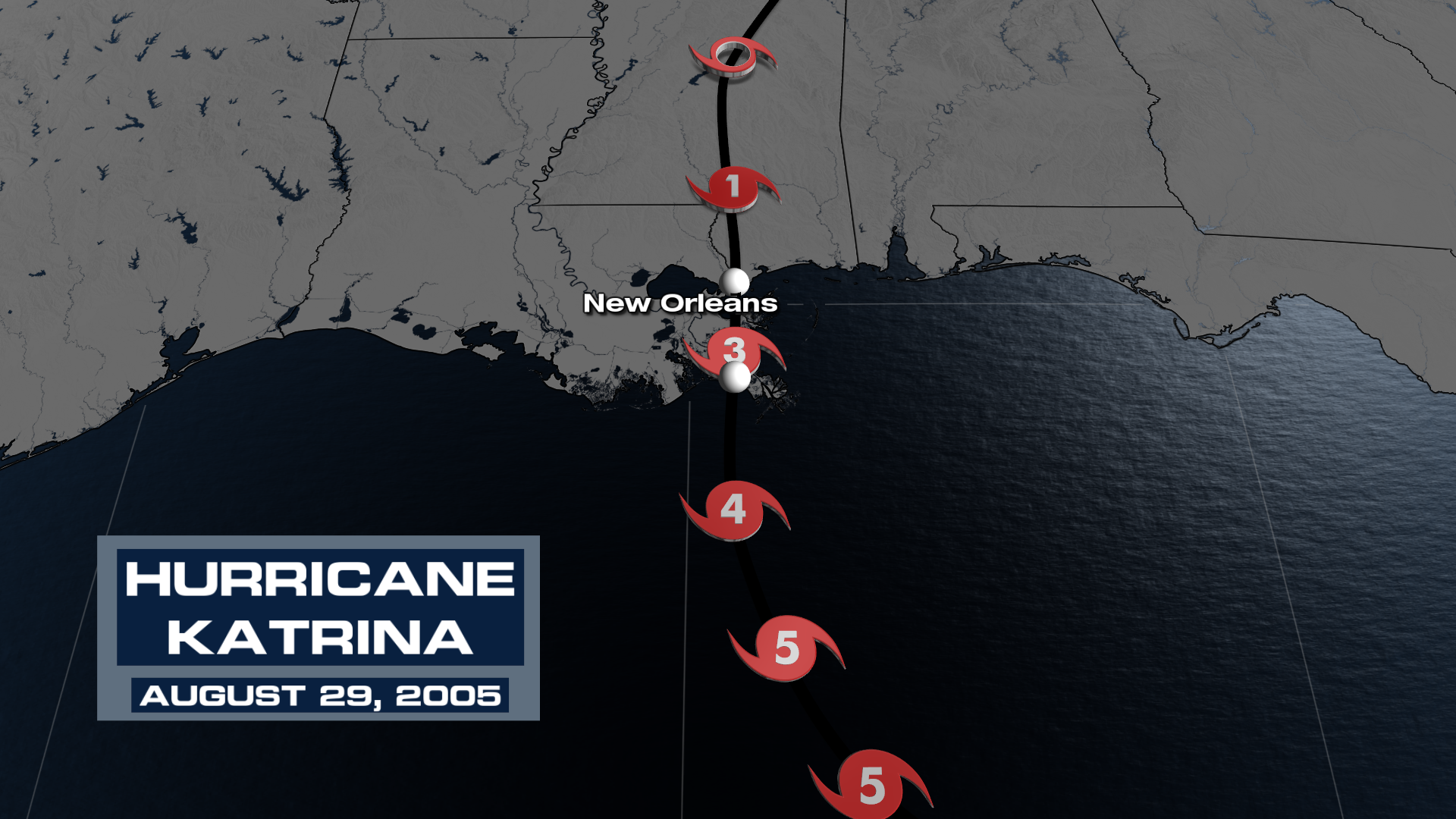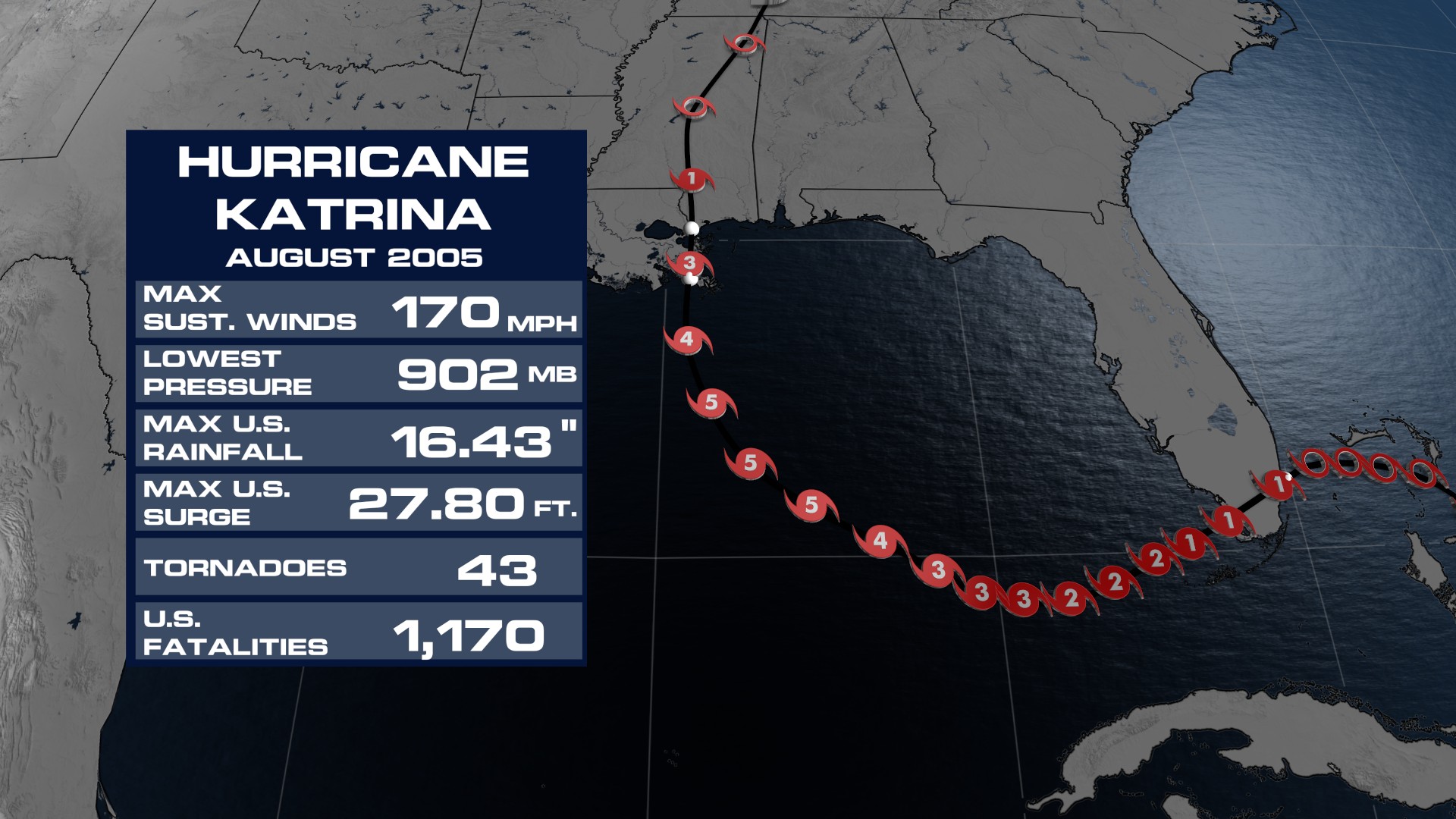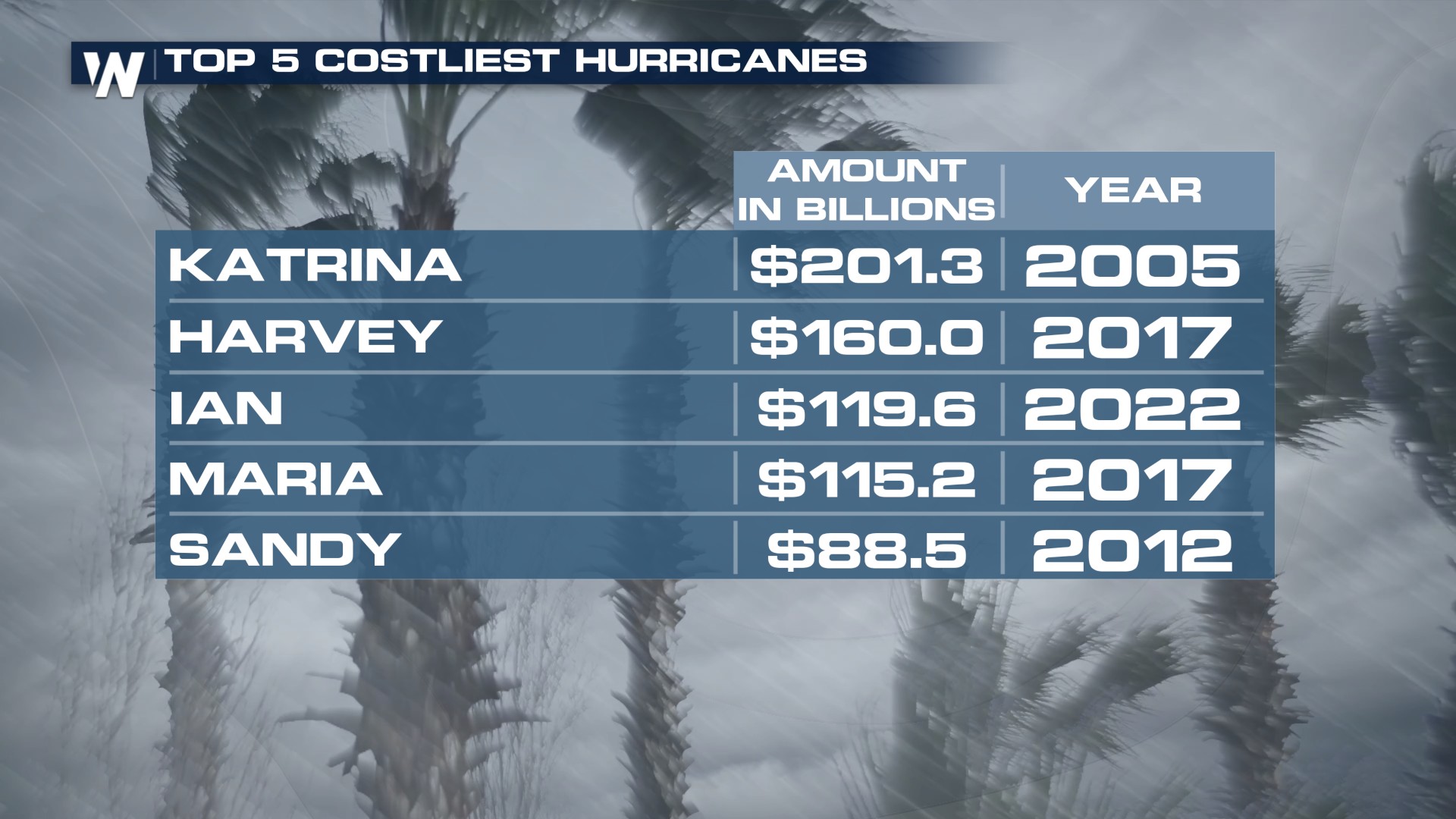Hurricane Katrina: Remembering the Devastation, 20 Years Later
Friday marked the anniversary of Hurricane Katrina, one of the most devastating natural disasters in U.S. history. On August 29, 2005, the powerful storm made landfall along the Gulf Coast, leaving behind a humanitarian crisis that would forever change New Orleans and the surrounding communities. Two decades later, the memory of Katrina still resonates deeply with survivors, first responders, and all who witnessed the destruction.

Katrina began as a tropical storm over the Bahamas on August 23 and quickly strengthened into a massive Category 5 hurricane over the Gulf of Mexico. It made landfall in South Florida as a Category 1 hurricane before moving into the Gulf. By the time it struck near Buras, Louisiana, on August 29, it had slightly weakened to a Category 3, but still packed winds of 125 mph and an unprecedented storm surge. The storm battered coastal areas of Louisiana, Mississippi, and Alabama, causing widespread damage and flooding.
New Orleans bore the brunt of the disaster. However, it was not from wind, but from storm surge and catastrophic levee failures. About 80% of the city was submerged, with some neighborhoods under more than 10 feet of water. Tens of thousands of people were trapped without food, water, or medical care. The scenes of stranded families on rooftops and desperate conditions inside the Superdome shocked the world. 
In total, Hurricane Katrina claimed over 1,800 lives and displaced more than a million people. The economic impact was equally staggering, with damage estimated at over $125 billion. Entire communities, were devastated, many of which still struggle with the long-term effects today.

Twenty years later, Hurricane Katrina remains a defining moment in American history. While many parts of the Gulf Coast have rebuilt and moved forward, the anniversary is a time to honor the lives lost, recognize the resilience of survivors, and recommit to building safer, more equitable communities in the face of future storms.
Katrina was eye opening in the world of hurricane observation and forecasting. Meteorologist Jesse Kelley spoke with the current Meteorologist in Charge at the National Weather Service in New Orleans to see how Katrina still factors into their decision making today.
Our own Hunter and Historian Josh Morgerman has close ties to the Gulf Coast, living in Bay St. Louis, MS. Dr. Jim Siebert sat down with him in a two part interview to talk about what made Katrina a historic storm and how he still sees its influences today.